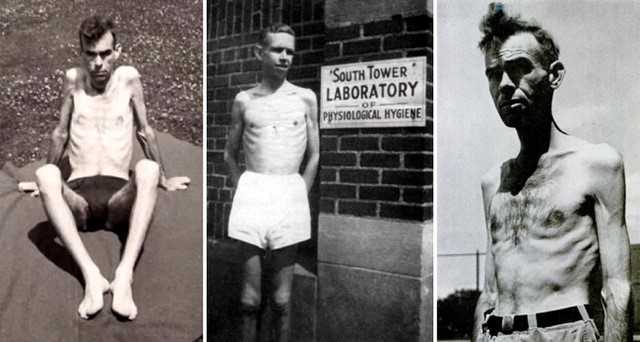When you go on any diet, where you are primarily made to restrict your overall calorie intake, a time comes, when the weight loss stalls, or you hit a plateau. Many people would then tell you that you have entered a state of metabolic damage, and you need to take some drastic steps to correct it.

Acc. to a 2016 study, it has been suggested in research studies that, a prolonged period of caloric restriction (CR) leads to a permanent decrease in resting metabolic rate (RMR) that goes beyond the value expected from the present body composition.
Metabolic slowing, was hypothesized to be irreversible upon the return to neutral energy balance and lead to “metabolic damage‟. Metabolic damage refers to a weight loss induced decrease in RMR that is beyond the value expected from the present body composition and persists after weight regain. It was suggested that metabolic damage is responsible for post-diet weight regain of overweight and obese individuals if weight-reduced individuals do not maintain a high level of physical activity or a calorie restricted state
Researchers tested the theory of metabolic slowing down, or metabolic damage, due to prolonged calorie restriction. To study in depth, they analysed the possible origin of the concept of metabolic damage, which they attributed to the infamous Starvation Experiment, by controversial scientist Dr. Ancel Keys, in 1945, in which 36 men participated. The experiment took place in the Laboratory of Physiological Hygiene at the University of Minnesota.
(Ancel Benjamin Keys (January 26, 1904 – November 20, 2004) was an American physiologist who studied the influence of diet on health. In particular, he hypothesized that dietary saturated fat causes cardiovascular heart disease and should be avoided.

Keys studied starvation in men and published it in two volumes under the title of The Biology of Human Starvation (1950).
He examined the epidemiology of cardiovascular disease (CVD) and was responsible for two famous diets: K-rations, formulated as balanced meals for combat soldiers in World War II, and the Mediterranean diet. He launched the Seven Countries Study in 1958, after exploratory research on the relationship between dietary pattern and the prevalence of coronary heart disease in Greece, Italy, Spain, South Africa, Japan, and Finland, to pursue the question of how dietary fat influenced blood cholesterol.)
Keys, during the II WW found that, millions of people suffered from starvation during the war, and doctors had no idea what to do with the people, as there was no information on the physiological effects of starvation. Keys, was able to convince the military that a study on starvation would yield some very important results for the humanity as a whole.
The basic design of Keys’ study was simple: to starve some subjects (or, at least, bring them to near starvation) and then refeed them. To achieve this in a controlled, scientific fashion, Keys envisioned a year-long study divided into three parts: an initial three-month control period during which the food intake of the participants would be standardized, followed by six months of starvation, and then three months of rehabilitation.
Keys took 36 volunteers, and replicated the condition of a typical POW camp, where they not only ate less food, but were also made to do heavy manual labour daily, march 22 miles per week on a diet that provided about 50% of their average daily energy expenditure.
None of the men had been overweight to begin with, their average weight during the control period being only 152.7 pounds. So, as they shed pounds they rapidly grew skeletally thin, their bones protruding from their skin at sharp angles. Keys carefully monitored all the details of the experiment.
He found that the heart rates of the men slowed dramatically, from an average of 55 beats per minute to 35. This was their metabolism slowing down, attempting to conserve calories. The frequency of their bowel movements fell to about one per week. Their blood volume dropped ten percent, and their hearts shrank in size.
Perhaps because of the amount of water they were drinking, the men developed oedema (retention of water). Their ankles, knees, and faces swelled — an odd physical symptom given their otherwise skeletal appearance.
The skin of some of the men developed a coarse, rough appearance, as a result of the hardening of their hair follicles. Other effects included dizziness, muscle soreness, reduced coordination, and ringing in their ears. But the creepiest change, which occurred in all of the men, was a whitening of their eyeballs as the blood vessels in their eyes shrank. Their eyes eventually appeared brilliantly, unnaturally white, as if made out of porcelain.

What was seen was that though, there was a marked decline in the subject’s basal metabolic rate all men lost weight and continued to lose weight throughout this period. In fact, they kept on losing weight until they got all the way down to 5% body fat and could no longer lose any more weight without risking serious health implications.
Now, we would all think, that with this type of starvation, the men would have entered the stage of metabolic damage.
The data revealed that starvation didn’t appear to have any significant, long-term negative impacts on health. The human body had evidently been designed by evolution to withstand long periods without food.
Even after losing an average of 25% of their body weights, the metabolic rates of these subjects, did not slow down to the extent, Keys predicted. Also, when they were refed, to regain the weight, their metabolic rates, on an average, were just 10% slower than where they were supposed to be, and in fact, in some cases, the metabolic rates were back to absolute normal, as if they never underwent any experiment.
What the researchers found was, that, when the long-term recovery period was analysed (not just first 12 weeks of recovery), there was no evidence that people suffered from any metabolic damage. They concluded by saying, that, “changes in energy balance induce a rapid yet reversible increase or decrease in RMR. Previous reports may have come to erroneous conclusions in favour of the metabolic damage hypothesis because they did not examine the full recovery period in the Minnesota experiment or neglected the influence of energy balance on RMR.”
Interestingly, the researchers also examined studies on malnourished individuals and anorexia nervosa patients. They found that even in such a drastic, chronically undernourished state, the basal metabolism of the participants corresponded to their body composition. RMR was low, but it was low because subjects’ body mass was low. Another interesting point is that during refeeding of anorectic patients their RMR increased more than predicted based on their body composition.
They also tested the third case, i.e. of present bodybuilding and physique athletes, who underwent drastic calorie restriction, during competition preparation. However, researchers found that, after the competition, when the athletes started eating more to return to their initial body weight, their basal metabolisms also increased.
The study, suggested that, acute changes in energy intake – such as eating less or eating more – can decrease or increase your RMR. But then, within 1-3 days, after you stop dieting and return to your maintenance energy intake, your basal metabolic rate will also increase. The human metabolism is flexible and adjusts to changing conditions quickly. If you can’t lose weight, it’s not because of metabolic damage. In most cases, poor diet compliance causes weight loss plateaus.
So, you can keep losing weight, till you die. The body adapts, to drastic calorie reduction by various adaptations like slowing of metabolism, hormonal changes etc. But, you need to regain your senses and understand the real science of how to lose fat, which is another topic of discussion.
However, your body is strong enough, in the long run to get back to normal state, with worse of dieting you have undergone. The real concern with such extreme and prolonged dieting is generally not metabolic damage, but serious health complications.



